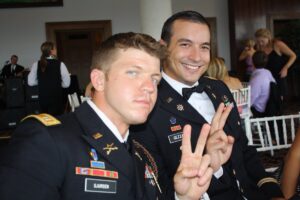Kathy Kelly, writing on behalf of the Committee to Oversee Closure of Voices for Creative Nonviolence: Sean Reynolds, Sarah Ball, Ken Hannaford-Ricardi, Kathy Kelly, and Bob Alberts

VCNV is closed down but here are some important efforts that continue…
Voices for Creative Nonviolence UK (www.vcnv.org.uk) is not closing and will continue its work ably led by Maya Evans.
The Afghan Peace Volunteers (ourjourneytosmile.com) and the Global Days of Listening (globaldaysoflistening.org) will welcome ongoing communication and solidarity.
We at Voices U.S. will be archiving our website, and closing our bank account, in early 2021. We again thank all who have so generously supported us. We pledge to return-to-sender any checks
we receive after November 10th. All of the money in our account will be disbursed.
Any funds designated for the Afghan Peace Volunteers will be sent to them, and we hope to assist their budget requests for the Afghan calendar year which runs from March 2020 – March 2021.
We will also make, and additionally encourage, donations to:
- Voices for Creative Nonviolence UK (www.vcnv.org.uk)
- Jesuit Refugee Services projects in Kabul (1627 K St NW Ste 1100, Washington, DC 20006). Voices members have regularly visited JRS projects, including education efforts, within a particular refugee camp, and have known of JRS’ admirable work in Kabul since our first visit in 2010. Checks can be sent payable to Jesuit Refugee Services, with “Kabul projects” written in the memo section and/or with an accompanying note designating that the contribution is for JRS’ projects in Kabul.
- Emergency Surgical Center for Victims of War, Afghanistan (https://en.emergency.it/projects/afghanistan-kabul-surgical-centre/). Voices members have regularly visited their hospital in Kabul since our first visit to Afghanistan in 2009. Donations can be made through Emergency’s website.
- Yemen Relief and Reconstruction Fund (https://yemenfoundation.org/) Donations can be made through the website or checks can be made payable to: Yemen Relief and Reconstruction Foundation (YRRF) and mailed to: 3216 74th Place SE, Mercer Island, WA 98040
Over the years, we have collaborated with several other organizations whose work we also plan to support with contributions. These include:
- World Beyond War (worldbeyondwar.org)
- Witness Against Torture (witnessagainsttorture.com)
- The Nuclear Resister (nukeresister.org
and
- The Kings Bay Plowshares 7 (kingsbayplowshares7.org)








 welcome! Sliding scale donations welcomed, too.
welcome! Sliding scale donations welcomed, too.
Public health professionals have generally failed to work for the prevention of war, even though — like disease —war has negative impacts on health for both civilians and military personnel as well as detrimental impacts on infrastructure and the environment.
In a recent article, nine U.S. and Canadian public health scholars and thinkers directly confront “The Role of Public Health in the Prevention of War” — a role that has been tragically absent. Published in the June 2014 American Journal of Public Health, the writers pinpoint “militarism” as a root cause of the public health industry’s failure to take up the cause of preventing wars. Public health, they write, “has been more focused on the effects of war than on working toward the prevention of the fundamental causes of war.” The authors also define “militarism” in terms that are both familiar and chilling.
Worries roiling around the anti-Ebola virus effort, when compared with the prevention of war, might offer some insight into the way in which many Americans, including public health professionals, ignore the obvious when a new war is proposed, or an existing war is accepted, or a former war is discussed. As the outstanding, and overdue, AJPH article describes: “The United States launched 201 overseas military operations between the end of World War II and 2001, and since then, others, including Afghanistan and Iraq.”
Don’t the 190 million deaths “directly and indirectly related to war” during the 20th century represent a public health epidemic? Doesn’t the record-breaking war carnage of the past century qualify as a menace to public health?
If further proof is needed, consider this from the article: “Civilian war deaths constitute 85 percent to 90 percent of casualties caused by war, with about 10 civilians dying for every combatant killed in battle.”
Consider: “Ten percent to 20 percent of U.S. soldiers (of 1.8 million deployed since 2001) in the Iraq and Afghanistan wars have experienced a concussive event with long-term health implications.”
Consider: “Thirty percent of active duty women experience rape, and 5 percent multiple or gang rape. Female soldiers are more likely to be raped by a colleague than to be killed in combat.”
Consider: “More U.S. troops committed suicide last year than died in combat.”
The compilation and concise presentation of these staggering statistics by the article’s authors is exhaustively supported by 223 carefully researched references, by title, website, date and page.
To their credit, among other important breakthroughs the authors present a case for the prevention of war in fewer than 8,000 words. Details about authorship, led by W.H. Wiist of Northern Arizona University in Flagstaff, and references take up several more pages of this valid scholarly work, which is also very readable.
The writers follow a trail blazed when the American Public Health Association approved an official policy on the cessation of military recruiting in public schools. The APHA policy followed the 2002 No Child Left Behind Act, which gave military recruiters free access to public high schools along with the threat of funding cuts for noncompliance. According to the APHA policy: “Across the United States, recruiters from all branches of the military regularly enter every public high school to approach adolescents aged 14 through 18 years to persuade them to enlist in military service branches.” The vulnerability of minor-age children, and the disproportionate health consequences they face, compared to older soldiers, if they are recruited and sent to war is well documented. Action recommendations in the APHA policy include congressional repeal of public school collaboration with recruiters.
George Bush’s NCLB has been under justifiable scrutiny for its testing standards, while its enticement of adolescent children as potential combatants goes largely unnoticed. If parents, educators, churches, public health professionals, caregivers, and many other righteous people fail to intervene against the recruitment of minors in public schools, they embody the very definition of systemic militarism.
In three powerful paragraphs, the article dissects and defines militarism as extending a military mindset “into shaping the culture, politics, and economics of civilian life so that war and the preparation for war is normalized.”
Militarism “glorifies warriors, gives strong allegiance to the military as the ultimate guarantor of freedom and safety, and reveres military morals and ethics as being above criticism.” As a war-like, violence-seeking condition, the authors continue, “militarism has been called a ‘psychosocial disease,’ making it amenable to population-wide interventions.
“Thus, militarism warrants a priority focus for public health’s efforts to prevent war, including emphasis in public health curricula, research, and advocacy.”
Militarism’s profound effects on the economy, politics and corporate profits are noted, as are the military’s shadow cast across research and development, education, civilian law enforcement, justice systems, the media, outer space, and other important segments of 21st-century life. The writers wisely selected the pervasive presence of militarism as offering “critical insight for the analysis of the causes of war, the effects of war on health, and the influence of a culture of war on society and on the prospects for peace.”
They conclude: “Public health practitioners and academics have an obligation to take a lead role in the prevention of war by addressing the fundamental causes in society that lead to war.”
With clear thinking and focused writing, the American Journal of Public Health article explains precisely why “war is not healthy for children and other living things,” as the Another Mother for Peace anti-war slogan pointed out nearly 50 years ago.
David Giffey, of Arena, is the editor of “Long Shadows: Veterans’ Paths to Peace.”